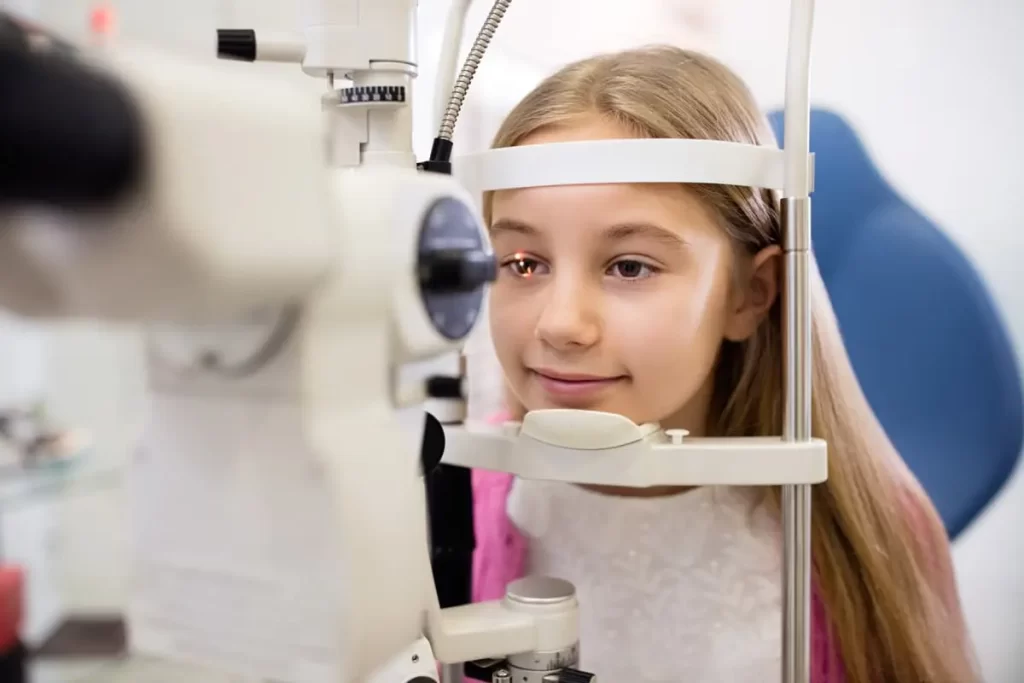Exploring the Complexities of Vision Beyond Basic Clarity
When people typically think of an optometrist, they often limit their perceptions to just the simple provision of prescriptions for corrective lenses or solutions for dry and fatigued eyes. However, it is essential to recognise that numerous visual challenges extend far beyond just blurry vision. In many cases, an individual’s eyes may appear completely healthy, yet they could be grappling with complications such as inadequate reading comprehension, stalled academic advancement, or a marked decline in their capacity to concentrate and stay focused as the day progresses. Recognising these subtle indications can be crucial for revealing underlying vision problems that might otherwise remain unnoticed.
At Eyes by Design, we take great pride in our proficiency in behavioural optometry, which represents a refined medical approach that goes beyond merely achieving clear sight. Our emphasis is on comprehending how the entire visual system plays a vital role in enhancing learning performance and facilitating crucial everyday activities. This perspective acknowledges that vision is not a static condition, but a dynamic interplay among the eyes, the brain, and the body, all working together to provide a seamless and effective visual experience.

Unpacking the Core Principles and Advantages of Behavioural Optometry
Behavioural optometry, often referred to as functional or developmental optometry, is founded on the principle that attaining clear vision is merely the initial step in a comprehensive visual experience. For vision to be genuinely effective, the eyes must operate optimally, track accurately, adapt focus seamlessly, and relay information to the brain in a manner that supports movement, posture, memory, and learning processes in a coherent fashion.
This holistic approach encompasses several fundamental components:
- Effortless tracking across a variety of mediums, including printed texts, pages, and digital displays
- Rapid and precise focusing capabilities across different distances
- Effective coordination between both eyes to ensure peak visual performance
- Improved spatial awareness and body control
- Accurate visual processing during real-time activities and tasks
A behavioural optometrist conducts thorough evaluations of these interconnected systems. The main objective is to determine not only if you can see clearly but also whether your visual system is functioning optimally to support your daily tasks and social interactions effectively.

Recognising Key Indicators That Visual Challenges May Be Affecting Your Life
1. Your Child Faces Reading Difficulties Despite Being Eloquent and Intellectually Capable
A child who is both intelligent and articulate yet struggles with reading may not necessarily have a learning disability. Instead, they could be experiencing visual dysfunction. Indicators such as skipping lines, using their fingers to track words, or perceiving that the text blurs or shifts can signal a need for further examination. We perform comprehensive assessments to evaluate how the eyes function during extended near tasks like reading, where even minor inefficiencies often elude detection during standard eye examinations.
2. Experiencing Frequent Headaches or Eye Strain After Prolonged Screen Time
Many individuals tend to overlook digital eye strain as a common issue; however, symptoms such as pressure behind the eyes, headaches at the end of the day, or difficulties in maintaining focus can indicate a breakdown in visual coordination. Through our comprehensive behavioural assessments, we can identify whether the muscles responsible for aligning and focusing the eyes are overworked due to the demands imposed by screen-based activities.
3. Demonstrating Poor Coordination, Clumsiness, or Reluctance to Engage in Sports
Vision plays a crucial role in facilitating movement and overall coordination. If a child seems hesitant to participate in ball sports, struggles to catch objects, or has difficulty maintaining their balance, these behaviours may relate to how their brain interprets visual-spatial cues. Such patterns often indicate challenges in visual-motor integration rather than a lack of athletic ability.
4. An Eloquent Child Who Struggles with Written Assignments
Many children who are naturally inquisitive and verbally expressive may find academic tasks challenging due to expending excessive effort tracking and processing written material. Behaviours such as fidgeting, daydreaming, slow task completion, or reluctance to read could stem from unrecognised functional vision issues and should not be dismissed as mere disinterest or defiance.
5. Ongoing Issues Despite Wearing Corrective Glasses
Some patients continue to face challenges even after multiple adjustments to their prescription glasses. They may find it difficult to relax their eyes, struggle with depth perception, or never experience visual comfort. This often suggests underlying issues with eye teaming or neurological processing rather than simple refractive errors.

What to Anticipate During a Comprehensive Behavioural Optometry Assessment
At Eyes By Design, we employ a thorough, systematic, and highly personalised approach to our assessments. We meticulously evaluate how your eyes move, function in unison, and respond to various demands placed upon them. Our primary focus areas include:
- Control and precision of eye movements under varying conditions
- Flexibility and endurance in focusing over extended periods
- Alignment and coordination of both eyes for optimal visual performance
- Visual memory capabilities and strategies for managing cognitive load
- Coordination and skills in spatial reasoning
Based on our findings, we develop a customised plan that may incorporate therapeutic lenses, vision therapy, or practical modifications to your environment, whether at school or in the workplace. This ensures a tailored approach aimed at enhancing your visual experience and overall functionality.
Understanding the Impact of Vision on Everyday Activities and Learning Efficiency
If you or your child are experiencing daily challenges that standard eye examinations cannot adequately clarify, a behavioural optometry assessment may unveil the underlying factors contributing to these frustrations. This process transcends merely aiming for clearer vision; it encompasses the pursuit of enhanced comfort in seeing, increased confidence in movement, and improved learning efficiency.
At Eyes By Design in Kincumber, we are committed to empowering individuals to unlock the full potential of their vision through comprehensive behavioural care. Our holistic approach aims to address the intricate nature of vision and its profound impact on overall quality of life.
This article aims to enhance understanding and knowledge regarding general eye health topics.
It should not replace professional advice, diagnosis, or treatment.
Always consult your healthcare professional before incorporating this information into your health regimen.

Dr Nicholas Altuneg
For over two decades, my utmost passion has been to empower individuals of all ages to lead improved lives through enhanced vision. At Eyes by Design, we maintain that vision encompasses far more than simply the ability to see clearly or read small letters from a distance; it profoundly shapes your perceptions and responses at every moment of the day.
Read more about Dr Nick
The Article: Signs You Need a Behavioural Optometrist first appeared on https://writebuff.com
The Article Behavioural Optometrist: Key Signs You Shouldn’t Ignore Was Found On https://limitsofstrategy.com




